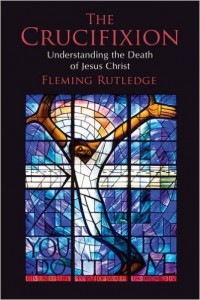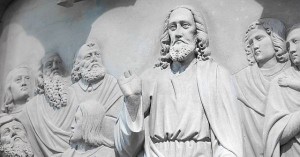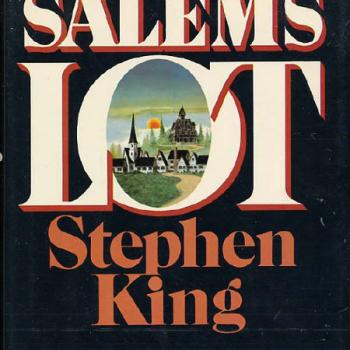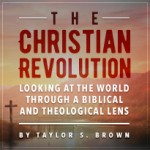I’m continuing to (slowly) work my way through Fleming Rutledge’s excellent book, The Crucifixion: Understanding the Death of Jesus Christ. It really is living up to all of the accolades that it has received. It’s dense, but extremely well argued and very rewarding. Eerdmans even put out an interview with her in anticipation of the release of the paperback edition of the book.

Rutledge is very consciously thinking and writing from the perspective of an apocalyptic theological perspective, particularly in relation to the writings of the Apostle Paul. For those who are unaware, the school of thought known as “Apocalyptic” is a tradition of theological thought that places primary emphasis on the in-breaking action of the God who is fundamentally Other than all of creation, especially from human culture, power structures, and “religion” (which is used to mean those human attempts to try and reach the divine).
So if you think “Apocalyptic” has primarily to do with a genre of movies dealing with the collapse of civilization, sorry but you’ve been misinformed.
As with many theological schools of thought, Apocalyptic is far from monolithic. The best parts of the tradition emphasize the fundamental, ontological difference between God and humanity, and the fact that deliverance from evil and death is fully an act from God, not from us. The worst parts of the tradition can so emphasize the discontinuity between God’s action in the Christ event that they tend to relativize continuity between God’s prior action in the salvation-history of Israel.
Thankfully, Fleming Rutledge embodies the best of the Apocalyptic tradition. She rightly emphasizes the Otherness and discontinuity of God’s action in Christ without completely disconnecting it from God’s prior action in the history of Israel. She strikes a good balance of continuity and discontinuity when it comes to describing God’s action in Israel and Christ.
In this vein, Rutledge provides one of the best working definitions of what “apocalyptic” means, and why it is important for us as Christians to remember:
The key apocalyptic idea…is the sovereign intervention of God, with a corresponding displacement of the capacity human beings to bring that intervention about. It must be said in the strongest possible terms: in no way does this emphasis on the divine agency mean that there is nothing for us to do, or that our activity is meaningless. What it means, rather, is that human activity points to the future reign of God and participates in it proleptically (prolepsis, “to anticipate”). It does not, however, make it come to fruition; only God can complete his purpose. At no time doe the Bible suggest that we are, in the currently popular phrase, “co-creators with God”; rather we are graciously called and moved to be participants in what God alone is able to create. The word “eschatology” does not necessarily make this distinction clear; it is possible to refer to the “last things” and thus speak eschatologically, without being careful to show that God alone will cause those last things to come to pass—the emphasis that is the hallmark of apocalyptic. The role of the people of God is participation in what God is already doing (p. 222).












